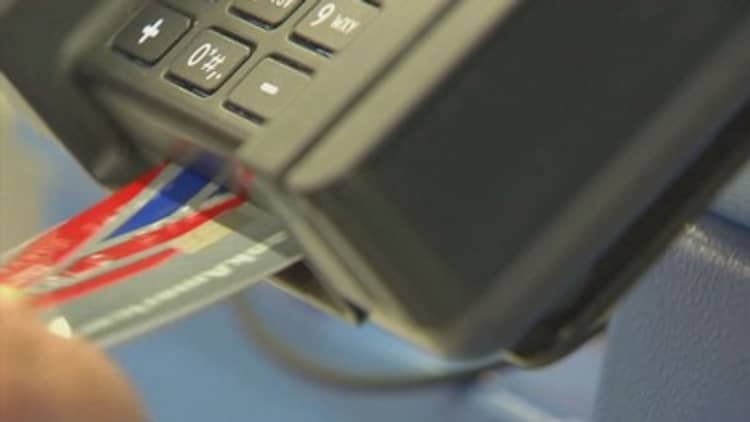It doesn't hurt to ask, especially if it's your credit card company. Requests can save you hundreds of dollars a year.
More than 8 in 10 people who have asked their card issuers to drop annual fees, waive late charges and reduce their interest rates got what they wanted, according to a new survey from CreditCards.com of 952 cardholders.
The success rate varied based on the type of request cardholders made:
- 87 percent had a late payment fee waived.
- 82 percent got their annual fee dropped or reduced.
- 69 percent received a lower interest rate.
Sadly, only about half of cardholders asked their card issuers for a break, the survey found. That is real money left on the table when you consider the average late fee is roughly $25 per transaction, a rate cut of 1 percentage point can save someone $160 if they have a typical credit-card balance of $16,000, and any reduction in the annual fee is just icing on the cake.
"You have to be willing to negotiate. Know what you can accept and be prepared to walk away from the table if necessary," said Matt Schulz, senior analyst at CreditCards.com.

Information is ammunition for your credit-card negotiations. Schulz recommends that people collect card offers online and keep the ones they receive in the mail to use as leverage against their current issuers when they make their requests.
Haggling with card companies is more important because debt balances are creeping up to levels not seen since the financial crisis. Outstanding credit card debt topped $1 trillion at the end of 2016, according to The Nilson Report, a card and mobile payment trade publication.
Even if you don't carry a balance, you should squeeze your card issuers for a better deal.
Your requests to card companies will have a higher success rate if you earn more. CreditCards.com found that people who earned more than $75,000 a year had an easier time receiving late fee waivers and reduced annual fees than those who earned less. Surprisingly, income level did not appear to increase the likelihood of getting a rate reduction.
More from Balancing Priorities:
Are you smart about money? Your behavior suggests otherwise
Survey: Many would rather be diagnosed with a serious illness than face a large medical bill
Without lifting a finger, your credit score could jump 40 points or more
And that annual fee on your premium card is not set in stone. Only 11 percent of cardholders has ever requested a break on the annual fee. But when they asked, 51 percent were able to get an annual fee waived and 31 percent got the fee reduced.
As balances and rates rise, don't expect your card issuers to always cut you some slack. "The credit card world is slowly changing and banks aren't going to be as flexible in future," Schulz said.





